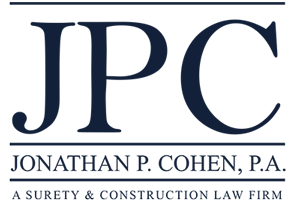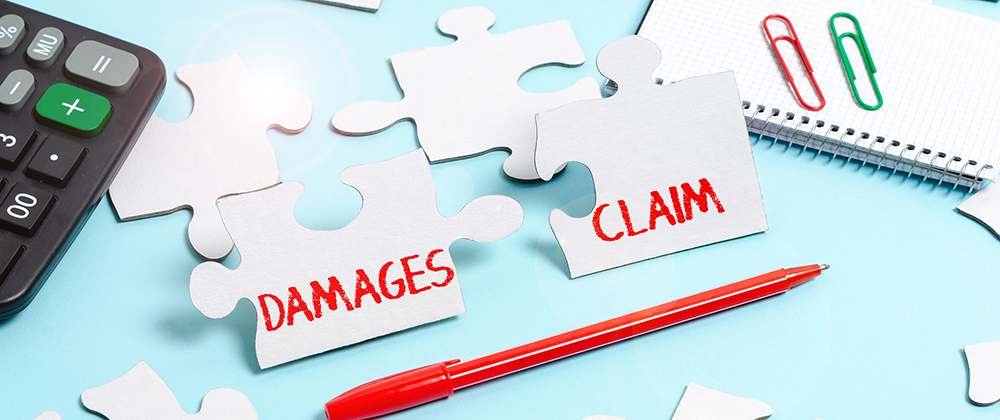Nearly all standard contracts used within the construction industry include consequential damages waivers. These clauses purport to waive a party’s liability if a claim arises. However, they are frequently the subject of litigation about their enforceability because many parties don’t understand the meaning of consequential damages, and the clauses themselves are frequently unclear. Here is some information about consequential damages and waivers from Florida construction lawyer Jonathan P. Cohen, Esq.
What Are Florida Construction Consequential Damages?
Consequential damages can best be understood by contrasting them with general and special damages. General damages are losses that are the natural and direct consequences of an incident and injury. For example, if a contractor is paid $5,000 to complete a repair but fails to do the work, the contractor will owe $5,000 in general damages.
Special damages are monetary amounts to compensate a plaintiff for losses that normally wouldn’t result from a contractual breach but instead arise from the special circumstances of a party. For example, if the contractor in the example above was told the repair needed to be completed before an out-of-state guest arrived, and the guest would be unable to stay in the home if it wasn’t completed on time, the contractor would owe special damages to pay for the cost of the guest’s hotel accommodations if they failed to make the repair on time.
In contrast to general and special damages, consequential damages are foreseeable losses that one party incurs when dealing with third parties. For example, in Urling v. Helms Exterminators, Inc., 468 So.2d 451 (Fla. 1st DCA 1985), The Florida Court of Appeals for the First Circuit found that repair costs required to remedy extensive damage caused by termites were consequential damages, while the costs of an erroneous inspection certifying the home was free from termites were general damages. In that case, the erroneous inspection and certification were completed before the homeowner purchased the home and relied on it when making the purchasing decision. The required repairs of the termite damage occurred after the purchase was completed and would not have arisen if the inspection had been accurate.
Ambiguity in Consequential Damages Waivers
Consequential damages waivers are legally allowed as long as the terms of the clause are unambiguous and clear. These clauses have been found to be unenforceable when the language used is unclear about the circumstances under which they would be applied.
For example, in a clause that purports to waive the contractor’s liability for incidental, consequential, or direct damage to the property caused by vandalism, theft, rain, fire, flood, storms lightning, or other factors, the owner might argue the clause is ambiguous and unenforceable if the second sentence then purports to waive the contractor’s liability for damage to the contractor’s work.
The owner will likely argue that the clause is contradictory because the first sentence purports to limit liability for property damage, while the second only limits liability for damage to the contractor’s work. By contrast, the contractor will likely argue that the clause addresses two separate aspects of damages, including damage to the property and damage to their work. The owner will likely argue that the ambiguity exists because the contractor’s work is necessarily included in the definition of the premises, so the meaning of the clause is unclear and unenforceable.
Avoiding Ambiguity in Florida Construction Consequential Waiver Clauses
Including a consequential damages waiver clause in a construction contract is in the contractor’s best interests. However, the clause will not be worth anything if it is not written in a way that is clear, unambiguous, and enforceable. Imprecise language and contradictory statements can render a consequential damages waiver unenforceable and expose the contractor to substantial liability.
To avoid potential issues with consequential damages waiver clauses, it’s important for you to first learn what consequential damages are and gain a clear understanding of how they differ from general damages and special damages. Once you understand the differences between the three types of damages, you’ll need to have a Florida construction lawyer like Jonathan P. Cohen, Esq. draft a clause that is clear, not contradictory, and can’t be interpreted in more than one way. Your clause should list the specific types of damages that will be waived. For example, your clause might specify increased material costs, increased labor costs, lost profits, loss of use, etc.
Contact an Experienced Florida Construction Lawyer
A well-drafted contract is crucial when you are preparing to commence a construction project. It’s important to ensure all clauses are clear and that each contracting party understands its contractual duties and obligations. If your contract will include a consequential damages waiver clause, it must be clear and unambiguous if you want it to be upheld and enforced. At the law firm of Jonathan P. Cohen, P.A., attorney Jonathan P. Cohen has years of experience drafting and reviewing contracts in the construction industry and handling disputes and breaches when they arise. Contact us today to schedule a consultation by calling (954) 462-8850.
The information provided in this article does not, and is not intended to, constitute legal advice. The content in this article is presented for general informational purposes only.

